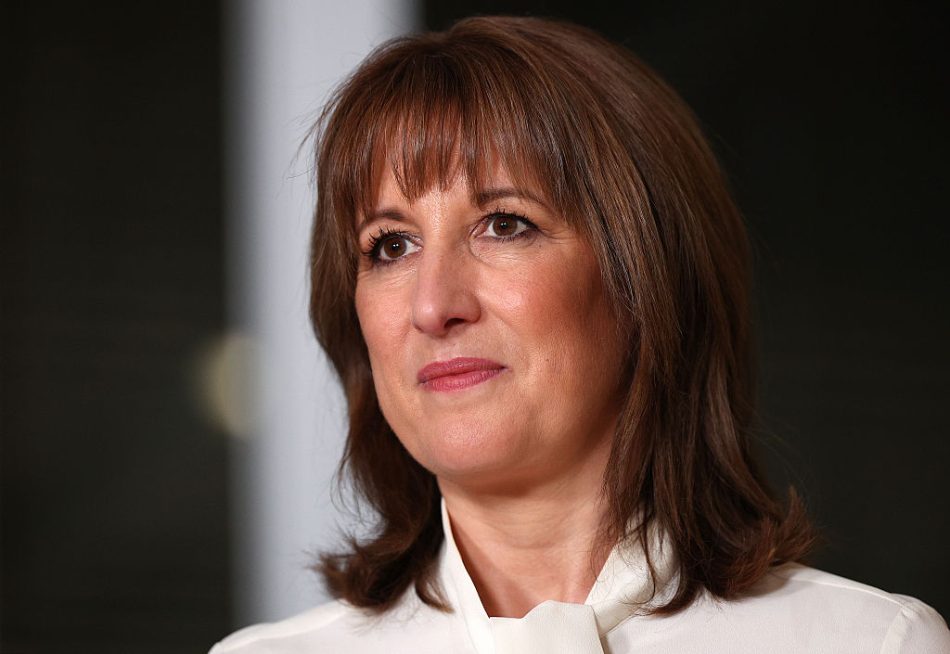There is something ironic about the fact that just as Donald Trump has made it clear that Europe needs to start defending itself, Britain has been moving in the opposite direction: and indulging in the fantasy of soft power.
Already this year, the government has argued that Britain must give away the Chagos Islands to Mauritius, which is a puppet of China, because the International Telecommunications Union might rule against Britain and that such a ruling might put broad spectrum military communications at ‘legal risk’. You really cannot make this stuff up. Starmer has surrounded himself with unworldly left-wing lawyers such as Lord Hermer, who fellow Labour man Lord Glasman last week called the epitome of the arrogant progressive fool. But that is not the real issue.
The hard truth is that Britain and other major western European powers have so neglected their armed forces over so many years they can barely afford to recapitalise them and pay for their running costs, never mind defend the continent.
The future defence of Europe largely depends on three countries. Britain, France and Germany represent some 70 per cent of all European defence investment and 90 per cent of all defence research and technology investment.
In 2021, the French Ministry of Defence produced a strategic update which established its security and defence priorities up to 2030. The Macron government emphasised the centrality of the French nuclear deterrent to Paris’s defence strategy. Paris also called on ‘Europe’ to assume greater ‘strategic autonomy’ from the Americans. And yet, French defence expenditure will not match Britain’s until 2027.
One problem both Britain and France share is the cost nuclear forces impose on the rest of defence. France spends about 2 per cent GDP on defence, but in 2024 some €6.6 billion of
of its €57 billion defence budget was allocated to nuclear forces. Consequently, Paris spends no more than 1.4 per cent or so of its GDP on conventional forces. Britain is not much better, spending only 1.5 per cent on conventional forces. The nuclear drag is one reason British defence chiefs have warned Starmer that increasing defence spending to 2.5 per cent of GDP will ‘not even touch the sides’.
As for Germany, the Bundeswehr is in an even worse state than the British and French armed forces. In 2023, General Alfons Mais, the head of the Bundeswehr, said that the force had only 60 per cent of the equipment it needs ‘from A for artillery pieces to Z for tent tarpaulins (Zeltbahn)’. Mais pointed out that nearly 2,000 crucial items are missing from Germany’s arsenal. Of all the major European powers, only Poland has committed to spending anything like the 5 per cent defence commitment Trump has called for, with Warsaw planning to spend 4.7 per cent of its GDP on defence in 2025. But even this means Poland’s 2025 defence budget at $31 billion will be less than half of Britain’s $80.62 billion.
The only thing Britain’s own Strategic Defence Review needs to address is the challenge Trump has laid down: what does Britain need to do to prevent Russia from attacking Nato Europe in the absence of American forces?
At the very least Britain would need to contribute to a European force of sufficient strength, mobility, military capability and capacity to fight any Russian advance to a stop. Such a force would need to operate across multiple domains, including air, sea, land and space.
Unfortunately, Starmer seems to be retreating into strategic fantasy instead. Nowhere is this more apparent than his proposal to send British forces to keep the peace between Russia and Ukraine in some future demilitarised zone. First, what troops? British forces are so hollowed out after years of under-funding they simply lack the resources and personnel to undertake such a role. To do this, Nato would also have to move almost all of its forces to Ukraine, leaving the Baltic States and the Black Sea region effectively undefended.
What is clear that the old Nato model whereby America defends Europe whilst Europeans pretend to defend Europe is over. At the Nato Hague Summit in June the Americans will likely do the following. First, they will talk about the need to spend 5 per cent of GDP on defence as part of a negotiating ploy. They will settle for between 3 to 5 per cent over five years. Second, they will emphasise how much Europeans spend on defence using American definitions (the Nato definition of defence spending includes non-military expenditure such as pensions). Third, the US will reject the excuse that European countries can only increase defence expenditure when ‘economic circumstances permit’. Fourth, Trump will link tariffs to defence expenditure. The White House will likely offer tariff relief to European nations who commit immediately to spending more than 3 per cent of GDP on defence with a sliding scale thereafter for those who spend more. Trump will also likely demand access for US companies to the European defence market as part of the ‘defence tariffs’ deal. For Trump it is all about the money.
Washington will also likely call for a strategic audit to see how Europeans can get more bang for their existing buck and demand that new equipment is put in the field far sooner. The solution they will offer is to buy American military equipment off the shelf – in other words, buy American, get tariff relief.
The hard truth is that Britain’s armed forces not only need a lot more money, but a radical rethink. Much greater use of civilian assets will be needed, particularly in the digital domain, as Artificial Intelligence plays an ever-greater role in defence and deterrence. A new form of conscription might also be needed whereby companies loan technical specialists to the armed forces for a time to create a new kind of digital reserve. There are also some interesting ideas about involving the financial sector as a kind of great arsenal of 21st century democracy.
The hardest truth of all is that on our current levels of defence spending, Britain can either afford a bespoke nuclear deterrent or a Nato-useful conventional deterrent – but it cannot afford both. Of course, the government could increase defence expenditure at a stroke if it once again took all the costs of the nuclear deterrent out of the defence budget. But the costs will be eye-watering.
Britain will have to decide soon. For decades the Americans have been Europe’s Leviathan – but they cannot and will not fund such a role any longer. Europeans can no longer rely on empty words and soft power. The era of Paper Leviathans is over.







Comments